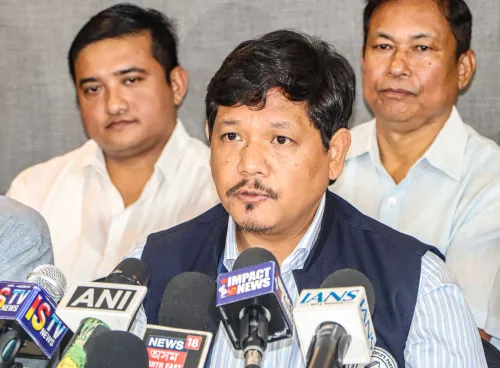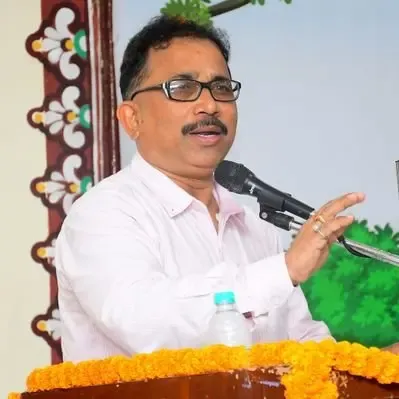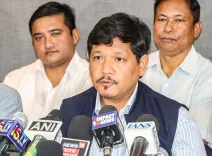Did MP judge hopeful Archana Tiwari fake her disappearance to avoid marriage proposals?

Synopsis
Key Takeaways
- Archana Tiwari's disappearance was a calculated escape.
- Family pressure can lead to extreme actions.
- Legal knowledge played a crucial role in her plan.
- The case raises questions about women's autonomy.
- Investigation highlights issues of law enforcement surveillance.
Bhopal, Aug 20 (NationPress) The perplexing case of Archana Tiwari, an aspiring civil judge and practicing attorney, has taken a dramatic turn, revealing an intricate web of deception that has left investigators astonished.
Late Tuesday night, law enforcement located Archana near the India-Nepal border in Lakhimpur Khiri, Uttar Pradesh, and she was swiftly returned to Bhopal early Wednesday morning.
What was initially perceived as a probable mishap on the Narmada Express train has evolved into a well-orchestrated escape plan.
As per Railway Superintendent of Police Rahul Kumar Lodha, Archana was reportedly facing considerable pressure from her family to discontinue her studies and enter into marriage with a Patwari.
Overwhelmed by numerous proposals and emotional distress, she confided in Saransh, a friend from Indore, who helped her craft a plan for her disappearance.
“Archana’s legal knowledge was pivotal in executing this plan. She intentionally left her bag on the train to portray an accident, changed coaches at Narmadapuram—a location lacking CCTV coverage—and instructed Tejinder, another accomplice, to discard her mobile phone in the forests of Bagratawa near Itarsi,” the officer stated.
“Unfortunately, Tejinder was apprehended by Delhi Police in an unrelated fraud case during this timeframe, complicating the investigation.
He works as a driver, while Saransh operates his own drone startup.
”To further complicate matters, Archana utilized WhatsApp calls. Saransh bought a new phone and a SIM card registered under his father's name, while he left his own device in Indore to fabricate a false location and digital trace. Their travel route was strategically planned to evade detection. They avoided toll booths, acquired a new mobile during their journey, and initially stayed within Madhya Pradesh. However, as media coverage heightened, they escalated their plan, moving to Hyderabad, a region with fewer Hindi speakers,” the officer added.
“Ultimately, they traveled through Jodhpur and Delhi to reach Kathmandu, Nepal. Saransh returned to Indore while Archana remained hidden until police, after detaining Saransh, persuaded her to approach the border, where she was captured,” the officer noted.
The case garnered significant attention after Archana’s bag, filled with Raksha Bandhan gifts, was discovered abandoned at Umaria station.
Her last known communication occurred on August 7, when she contacted her aunt, after which her phone became inactive.
Law enforcement tracked her movements through mobile data and eyewitness reports, ultimately locating her in Lakhimpur Khiri.
In a related investigation, authorities discovered Archana had been in communication with Ram Tomar, a constable at Bhanwarpura police station in Gwalior. He had booked a bus ticket for her from Indore to Gwalior, although she never utilized it.
The constable was detained on August 18 and is currently undergoing interrogation.
Archana is presently in Bhopal, where officials are scrutinizing the motivations behind her disappearance and the involvement of her accomplices.
This case raises critical questions about the intersection of legal knowledge, personal freedom, and the boundaries of law enforcement surveillance.










